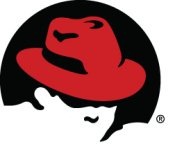Raleigh’s homegrown mega-business, Red Hat, has received state, county and city incentives to stick around, but there is still no official word as to when it will move into its new digs.
At the City Council meeting Tuesday, Mayor Nancy McFarlane announced the city would be offering the software developer $100,000 a year for 10 years as long as it maintains its headquarters in downtown Raleigh and the 600 jobs the company says it will create. The city also estimated that Red Hat’s move would generate $30 million for the economy.
The company has not announced when it will move from Centennial Campus to downtown’s Progress Energy Center.

Photo by Suzie T.
The city is also offering Red Hat use of municipal parking decks, which will be rented at market rate. McFarlane told the Record she anticipates they will take advantage of the now under-used Progress Energy Center decks.
The vote was unanimous, but Councilor Thomas Crowder voiced some concerns about the deal.
“I have a lot of concerns with incentives that we bring out,” he said. “Especially when we have a lot of other small business owners downtown.”
Crowder said because incentives were also approved by the Wake County Commissioners, he would compromise and support the payment.
Wake Commissioners approved their set of incentives during their meeting Monday. During the course of eight years, Red Hat will receive an estimated $675,000 in incentives from the county.
Those funds will begin in 2015 if Red Hat invests $30 million in construction, renovations, machinery, equipment, furniture and fixtures by 2013. Wake County also requires significant job creation as a stipulation.
Commissioner Ervin Portman voted against the incentives.
In April, Gov. Beverly Purdue said the state would grant $15 million in incentives during 12 years in return for Red Hat’s promise to create 540 jobs and invest $109 million in Wake County.
McFarlane said not only will Red Hat create jobs, but having the company downtown will attract other smaller start ups in open source software.
McFarlane didn’t say whether more incentives would be offered to other companies in the future.
“I think that people were more comfortable with it because it’s a business that is in Raleigh started in Raleigh,” McFarlane said. “I think it’s more like fostering our own.”
